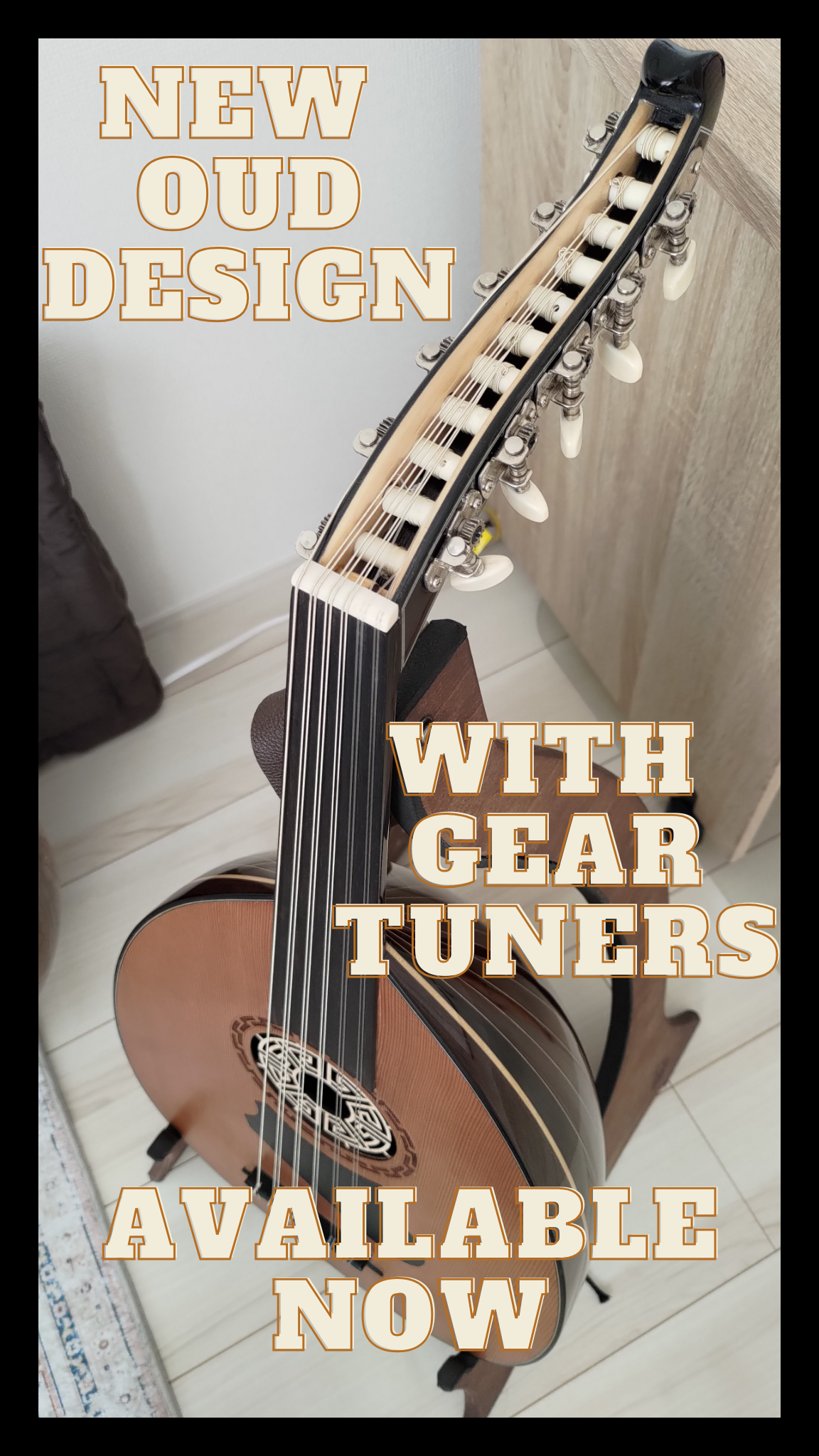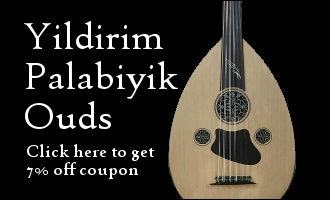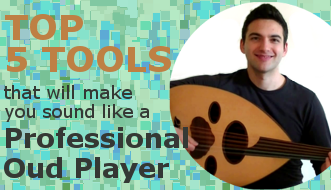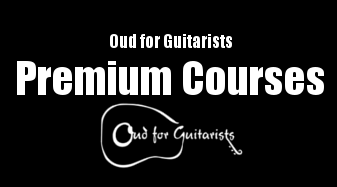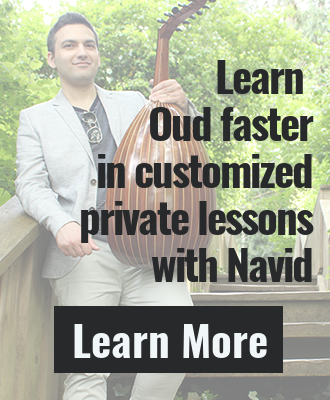It’s no secret that Persian musicians are pretty serious guys and gals. Have you ever been to a Persian concert? It’s no dance party, that’s for sure. But if you take a really good look at the music, and the history, you’ll find that Persian music has dance written all over it. That’s what I’m going to demonstrate this week… No, I’m not going to dance… I’ll perform…
Read MoreLearn Guli Ya Hilu on Oud
A few weeks ago you learned how to play a basic Jurjunah (Jurjinah) Rhythm on the Oud. Now it’s time to learn an actual song in this rhythm. We’ll learn Guli Ya Hilu, a well-know traditional Iraqi song. Check out the video below. Guli Ya Hilu is in an obscure Maqam called Lami. For information about this maqam listen to Jamil Bashir’s taqsim. You can also check…
Read MoreJurjunah Rhythm
Another widely known rhythm you may come across is Jurjunah. This rhythm is used a lot in Iraq, Kurdistan, and Iran. The rhythm is commonly written in 10/8. There are ten beats per measure. The key to understanding this rhythm is to remember how to subdivide the rhythm and which beats own the emphasis. Jurjunah is very straight-forward once divided properly. Jurjunah is divided into 3+2+2+3. The…
Read MoreDiba Ensemble Persian Setar & Oud on Live Radio
This week you’ll have a chance to listen to some new Persian music arranged for Oud and Setar. Diba Ensemble and I will be having a concert May 29, 2015, and we had the opportunity to go on a late night live radio show to talk about and play music. It’s the first Persian concert I’ve done is several years. I’ve been out of the Persian music scene for a…
Read MoreThe Difference Between Persian, Arabic and Turkish Quartertones
If you don’t know anything about me, the first thing you should know is that I only started listening to Arabic and Turkish music about 8 or 9 years ago. I’m Persian, I grew up listening to traditional Persian music, and the bulk of my musical education is in Persian music. So when I started to listen to Arabic and Turkish music I noticed that the quartertones (or…
Read MoreThe Vancouver Intercultural Orchestra
Do you have any plans in the future to play in an Orchestra? Are you forming a world music band or ensemble? Here are a few things to watch for and some suggestions on how to solve the challenges you might face performing and collaborating in this fashion. I started collaborating with the Vancouver Inter-Cultural Orchestra in Vancouver back in 2005 or 2006. This was my first real…
Read MoreThe Amazing SlowDowner
Remember my posts on Farid Al Atrash Taqsim Al Rabeea? How did I learn some intricate parts of his taqsim, especially the really fast parts? I used an Oud learning tool called the Amazing SlowDowner. It’s a nice little app I downloaded to my phone. It’s great for practicing songs, transcribing them, and learning them by ear. One of the problems Oud players often have is tuning our…
Read MoreArabic High ff Tuning: Everything you need to know…
The Arabic High ff Tuning is a great way to add range and versatility to the Oud. I used to wonder why you would want to add range to the Oud, but after learning a few songs using this tuning, I’ve really come to like the Arabic High ff Tuning. How to do it You have to buy a special set of strings to try this tuning. Or you can…
Read More6 Mini Scales That Create Maqam Music
In this week’s video, I want to share a shortcut with you. A shortcut that will help you learn maqam music. If you’re just learning the Oud or Middle Eastern Music, then you’re going to eventually learn how to play a maqam. I know that maqams are really, really hard to get into. When I started learning, I didn’t know what maqam I was hearing or playing… But…
Read More10 Ways to Hold An Oud Risha
There are many ways to hold an Oud risha, believe it or not… I learned how to hold it one way, and I eventually decided that it wasn’t for me and I changed my style and found what suited me better. In this video, you’ll see different styles of risha shape, material, and different ways to hold it. You’ll learn how Simon Shaheen holds his risha, and you’ll even…
Read More
